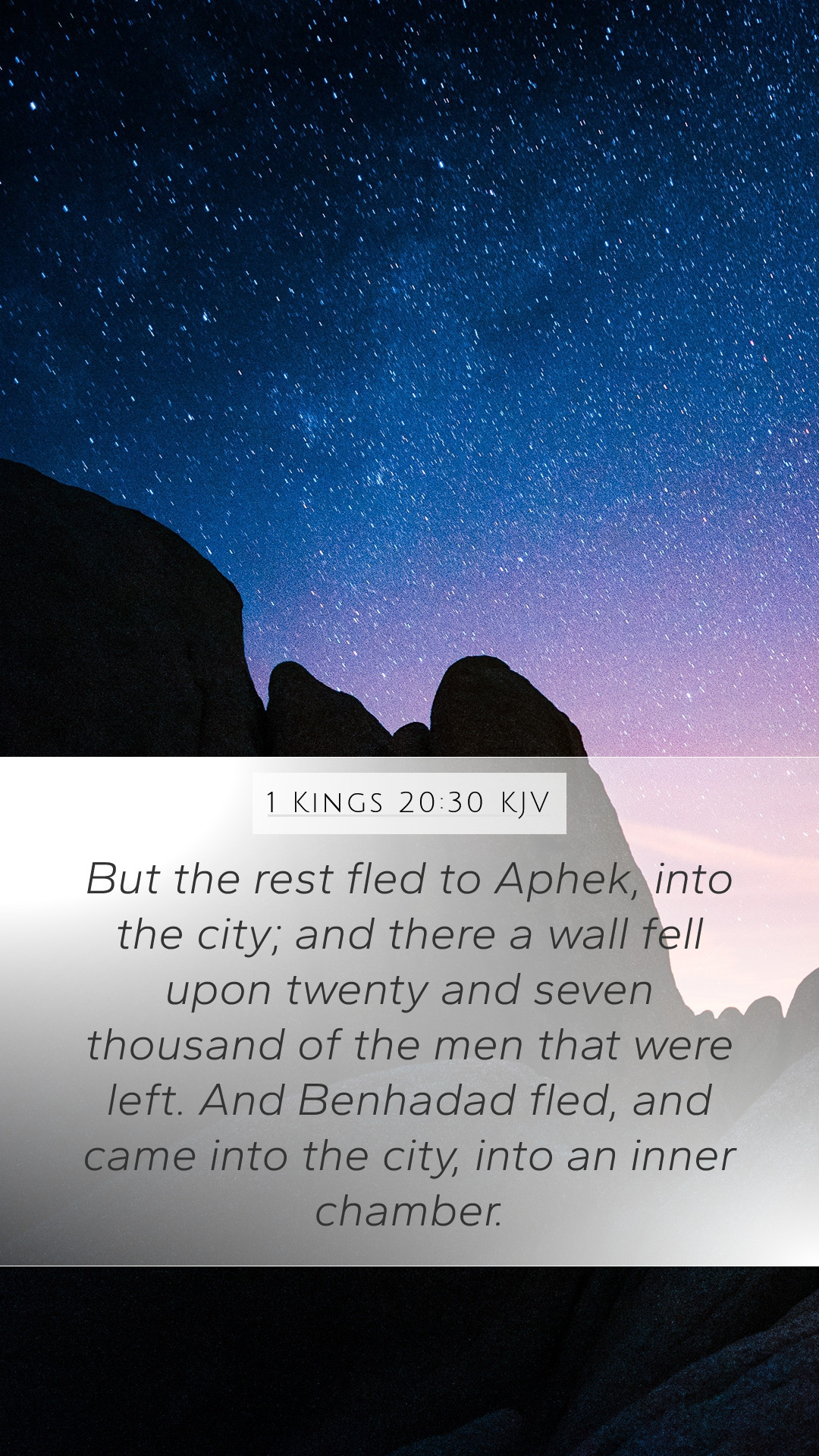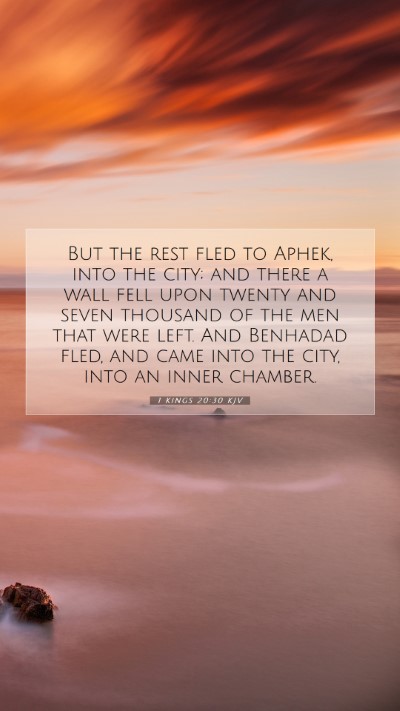Understanding 1 Kings 20:30
Bible Verse: 1 Kings 20:30 - "But the rest fled to Aphek, into the city; and there a wall fell upon twenty-seven thousand of the men that were left. And Benhadad fled, and came into the city, into an inner chamber."
Overview
The passage from 1 Kings 20:30 captures a moment of victory and relief amid a tumultuous battle. It highlights the vulnerability of those in conflict, particularly focusing on the defeat of Benhadad and the impact on his troops. The wall falling signifies not only a physical representation of defeat but also the futility of opposition against God’s ordained purposes.
Meaning and Interpretations
This verse, like many others in the Old Testament, provides valuable insights into God's sovereignty and judgment in historical conflicts. Below are interpretations sourced from various public domain commentaries:
-
Matthew Henry's Commentary:
Henry emphasizes the overall theme of divine intervention. He notes that the wall collapsing on the fleeing soldiers illustrates God's control over the elements and the fragility of human strength when opposed to divine will. The fate of Benhadad serves as a warning about pride and the consequences of rebellion against the Lord.
-
Albert Barnes' Notes:
Barnes provides a geographical context, explaining that Aphek signifies a place of refuge, yet it becomes a site of demise as well. He suggests that this paradox reflects the nature of reliance on earthly defenses rather than divine protection. The focus on Benhadad's attempt to hide in an inner chamber demonstrates the ultimate futility of his efforts to escape God's judgment.
-
Adam Clarke's Commentary:
Clarke delves into the numbers mentioned, pointing out the significance of "twenty-seven thousand" men lost. He indicates that such loss in battle highlights the devastating consequences of war and the divine orchestration behind these events. Clarke also remarks on the symbolism of the inner chamber, relating it to attempts at evasion from consequence and the futility of such actions when one is under divine scrutiny.
Key Insights
In summary, the passage from 1 Kings 20:30 conveys profound truths about:
- The powerlessness of humanity against divine decrees.
- The tangible consequences of relying on material fortifications rather than turning to God.
- The inevitability of divine judgment, as illustrated by the fate of Benhadad and his men.
- The reminder of the moral and spiritual implications behind human conflicts, illuminating how they are intertwined with God’s sovereignty.
Cross References
- 1 Kings 20:1-4: This earlier passage provides the context leading to this battle, showcasing the challenge brought by Benhadad.
- Exodus 14:30: Here, God's deliverance for His people is evident, juxtaposing it with the fate of his enemies.
- 2 Chronicles 18:30-34: Additional details on warfare dynamics and consequences for those who oppose God.
Application to Daily Life
This verse isn't just a historical account; it offers meaningful Bible verse understanding and practical applications for today's believers:
- Finding Refuge in God: Just as Benhadad sought refuge in the city but met his end, so too should we seek genuine refuge in God's presence rather than in transient places.
- The Impact of Choices: The choices we make can lead to significant consequences. Understanding the weight of this passage encourages reflection on our actions and reliance on God's guidance.
- Faith in Divine Sovereignty: Amid conflicts or personal battles, acknowledging God's sovereignty reassures us that ultimate control lies in His hands, leading us to trust more deeply in His plans.
Conclusion
1 Kings 20:30 serves as a poignant reminder of divine authority over human actions, the consequences of pride, and the importance of looking towards God for refuge and strength. This Bible verse commentary encourages believers to reflect on their trust in God amidst the trials of life, fostering a deeper Bible verse interpretation and understanding.


